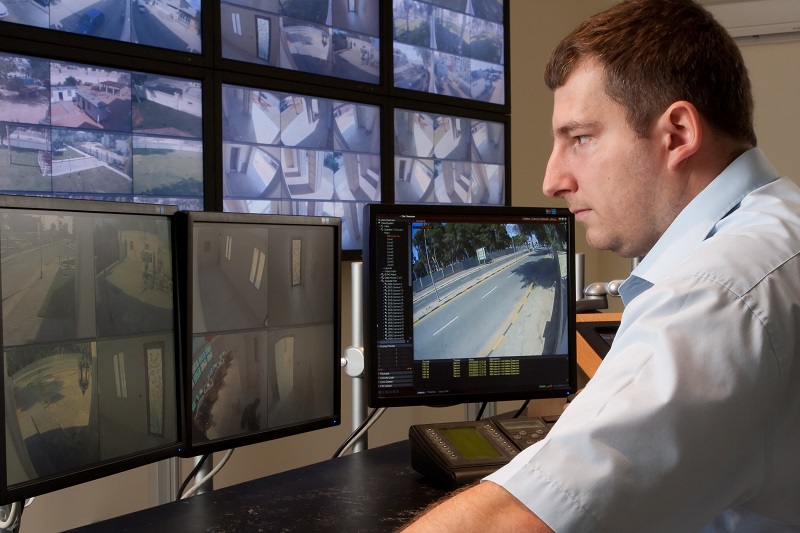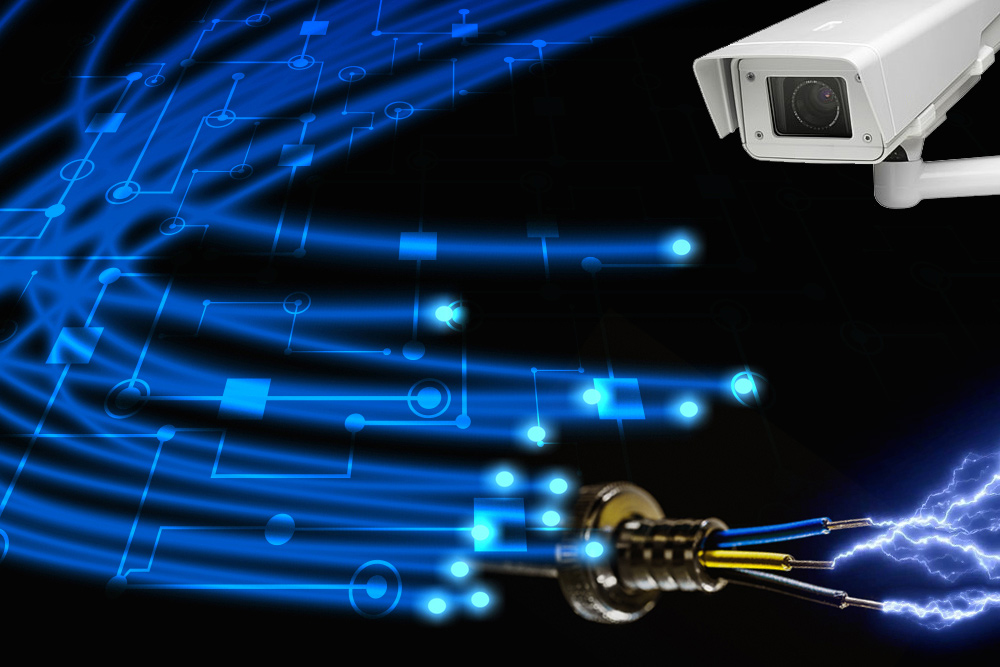Key Aspects of Fiber Optics Infrastructure for Security Installations You Need to Understand
Key Aspects of Fiber Optics Infrastructure for Security Installations You Need to Understand
Blog Article
Why Fiber Optic Safety Solutions Are the Future of Defense
The transition to fiber optic protection systems marks a significant development in the world of security, driven by their exceptional information transmission capabilities and strength to external disturbances. These systems not only assist in faster and much more reliable communication yet likewise offer an affordable solution with lowered maintenance demands. As the landscape of security progresses along with emerging modern technologies such as AI and IoT, the potential for optical fiber to enhance and redefine safety frameworks becomes progressively apparent. The implications of these advancements elevate vital inquiries concerning the future of security procedures and their effectiveness in an ever-changing environment.
Benefits of Fiber Optic Solutions
One of the main advantages of fiber optic systems is their exceptional data transfer ability, which promotes the transmission of huge quantities of information over cross countries without substantial loss. This characteristic is particularly beneficial for security applications that need the continual monitoring and transfer of high-definition video clip feeds, sensing unit data, and various other essential info. Fiber optics can suit the expanding demands of modern-day security systems, making certain that information stays intact and trusted.
Furthermore, fiber optic cable televisions are less at risk to electro-magnetic interference, which can be a substantial problem in atmospheres with different digital gadgets. This resistance enhances the honesty of the data being sent, consequently reducing the risk of data violations or system failures. Fiber optic systems are naturally more safe than traditional copper cords, as touching right into a fiber optic line without detection is extremely difficult.
The longevity of fiber optic cable televisions additionally contributes to their allure. They are resistant to environmental elements such as dampness and temperature fluctuations, reducing maintenance expenses and raising system longevity. Generally, these benefits setting fiber optic systems as a durable and effective choice for contemporary protection frameworks, making certain trusted and protected information transmission.
Boosted Data Transmission Rate

The capacity to transmit vast amounts of data swiftly promotes the seamless integration of high-definition video feeds and advanced analytics. Protection systems can currently refine and assess details in real-time, improving response times and situational understanding. In addition, fiber optic links sustain longer transmission ranges without degradation of signal top quality, making them ideal for expansive safety and security networks.
The enhanced rate of fiber optic systems not just enhances the effectiveness of safety procedures however likewise minimizes latency. This is especially essential in important scenarios where prompt decision-making can stop safety breaches or mitigate possible hazards. As companies proceed to prioritize safety and efficiency, the need for quick and trustworthy information transmission will most certainly strengthen fiber optic systems as a foundation of contemporary safety and security facilities.
Resistance to Interference
Fiber optic security systems continually show phenomenal resistance to electro-magnetic disturbance, a crucial benefit in atmospheres prone to digital sound. Unlike conventional copper wires, which can be negatively affected by magnetic fields, superhigh frequency disturbance, and other kinds of electric disruption, fiber optic wires utilize light to transmit information. This intrinsic home guarantees that the signals remain clear and unaltered, regardless of surrounding digital activity.
The usage of glass or plastic fibers in fiber optic modern technology creates an obstacle against disturbance, allowing for trustworthy data transmission even in difficult scenarios such as industrial centers, urban areas with high electronic traffic, or places near radio towers. This particular considerably lowers the possibility of signal destruction or loss, making fiber optic systems especially suitable for protection applications where integrity and accuracy of information are extremely important.
Furthermore, this resistance to disturbance improves the total performance and dependability of protection systems, ensuring that tracking and sharp systems function effortlessly. In a globe where security is progressively endangered by advanced modern technologies, the durability of fiber optic systems stands out as a critical function, strengthening their condition as a crucial component of modern security infrastructure.
Cost-Effectiveness In Time
Considerable expense financial savings can be accomplished gradually with the application of fiber optic protection systems. While the first investment might appear greater contrasted to standard copper-based systems, the long-term economic benefits emerge with decreased operational and maintenance costs (fiber security). Fiber optic cable televisions are inherently a lot more resilient and much less at risk to ecological aspects, my sources which translates to decrease substitute and repair work expenditures over their life-span
Additionally, fiber optic systems require much less power to operate, which even more reduces power costs. Enhanced information transmission capabilities permit fewer repeaters and amplifiers, lessening equipment financial investment and streamlining installation procedures. The scalability of these systems additionally adds to cost-effectiveness, as organizations can broaden their security facilities without incurring significant added expenses.
One more variable to consider is the raised effectiveness in surveillance and response abilities that optical fiber provide. Improved real-time information transmission can result in quicker case reaction times, potentially mitigating losses and this website obligations related to safety and security breaches. Altogether, the long-term benefits of fiber optic security systems not only validate the preliminary expense but likewise place them as a monetarily prudent choice for organizations looking for robust security remedies.

Future Innovations in Protection
Advancing innovations are readied to transform safety systems, incorporating expert system (AI) and equipment learning to improve danger discovery and response capabilities. These innovations will allow safety and security systems to analyze huge amounts of information in real-time, recognizing patterns and anomalies that suggest prospective hazards. This proactive method will make it possible for much faster decision-making and more effective incident reactions.
In addition, the unification of the Net of Points (IoT) is leading the way for interconnected safety devices, providing thorough surveillance and monitoring. Smart sensors can relay information concerning environmental changes, while automated signals can inform security personnel promptly of dubious activities.
Furthermore, the evolution of biometric modern technologies will certainly further boost security systems. Facial acknowledgment, finger print scanning, and retina recognition are coming to be much more advanced, supplying layers of verification that are tough to bypass.
Conclusion
In conclusion, fiber optic safety and security systems represent a significant improvement Your Domain Name in defense technology, using unmatched information transmission speed, resistance to electromagnetic disturbance, and long-lasting cost-effectiveness. As the need for advanced security options remains to grow, the assimilation of optical fiber with emerging technologies such as AI, IoT, and biometrics will additionally improve safety facilities (fiber security). The combination of these innovations will make certain an extra safe and secure and receptive atmosphere, solidifying fiber optics as a cornerstone of future protection systems
Report this page